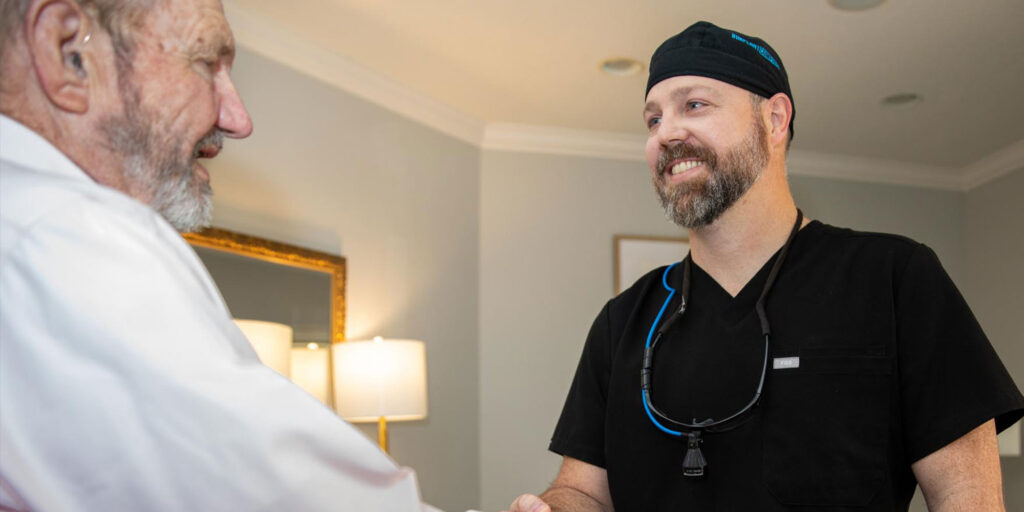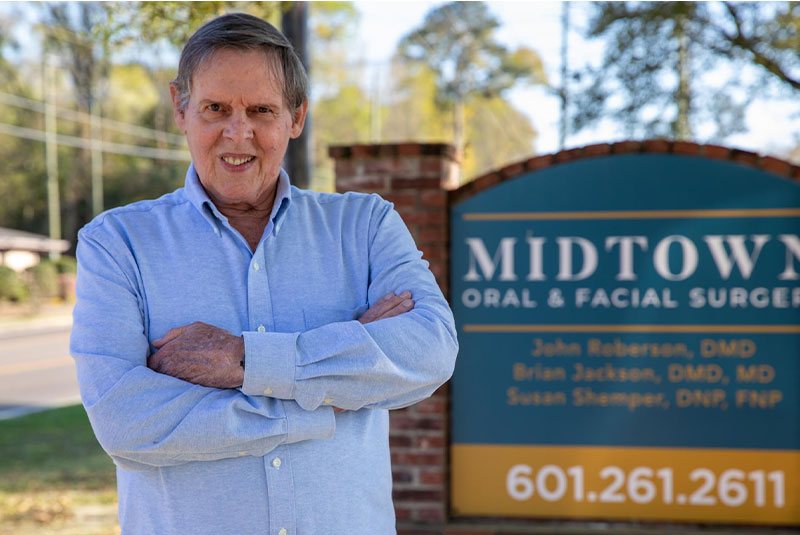Sleep Apnea Threatens Your Health
Sleep apnea often leads to noticeable disruptions in sleep and daily life, marked by loud snoring, persistent fatigue, impaired concentration, memory challenges, and even systemic health risks such as diabetes, high blood pressure, and cardiovascular complications. Sleep apnea involves recurrent pauses in breathing during sleep, ranging from mild (5-15 events per hour) to severe (over 30 events per hour). This occurs when the upper airway is obstructed by the tongue and soft tissues, causing airflow to the lungs to cease.
Oxygen levels drop, prompting the brain to partially awaken the individual to restore airflow, often accompanied by a loud gasp. These occurrences carry substantial and potentially life-threatening consequences, some of which can be enduring. Suppose you experience pronounced snoring or display other signs of sleep apnea. In that case, we encourage you to seek personalized sleep apnea treatment from J. Brian Jackson, DMD, MD, and John Roberson, DMD, in Hattiesburg, MS.

Expertise Matters
At Midtown Oral and Facial Surgery, our skilled oral and maxillofacial surgeons in Hattiesburg, MS, are equipped with specialized training and proficiency in sleep apnea treatment that alleviates your symptoms and elevates your quality of life. Our oral surgeons undergo rigorous advanced education and surgical training, a commitment spanning a minimum of four years after dental school.
With their comprehensive expertise, our Midtown Oral and Facial Surgery team is well-versed in a broad spectrum of sleep apnea treatments, encompassing oral appliances, and jaw advancement procedures. After a thorough assessment of the underlying causes of your obstructive sleep apnea, we will recommend the optimal surgical solution, if deemed necessary, tailored precisely to your needs.
Treatment for All Cases
Non-Surgical Treatment
Sleep apnea treatment usually commences with conservative strategies and therapies, such as weight management programs and oral appliances that help prevent tongue and tissue obstruction of the upper airway during sleep. While our approach typically does not involve prescribing CPAP machines, many patients with mild to moderate sleep apnea have found these conservative measures effective in reducing symptoms and improving their sleep quality.
Orthognathic Surgery
In severe sleep apnea cases, our skilled oral surgeons may recommend more advanced surgical interventions, such as orthognathic surgery, specifically maxillomandibular advancement surgery. This specialized procedure involves repositioning the lower jaw forward, effectively moving the foundation of the face to enlarge the upper airway. Doing so strengthens the airway's ability to withstand pressure from soft tissue collapse, significantly reducing the obstruction that occurs during sleep.

Benefitting from Sleep Apnea
- More restful and rejuvenating sleep
- Reduced risk of cardiovascular problems
- Lower blood pressure levels
- Increased mood and energy
- Improved concentration and memory
- Better health and quality of life


